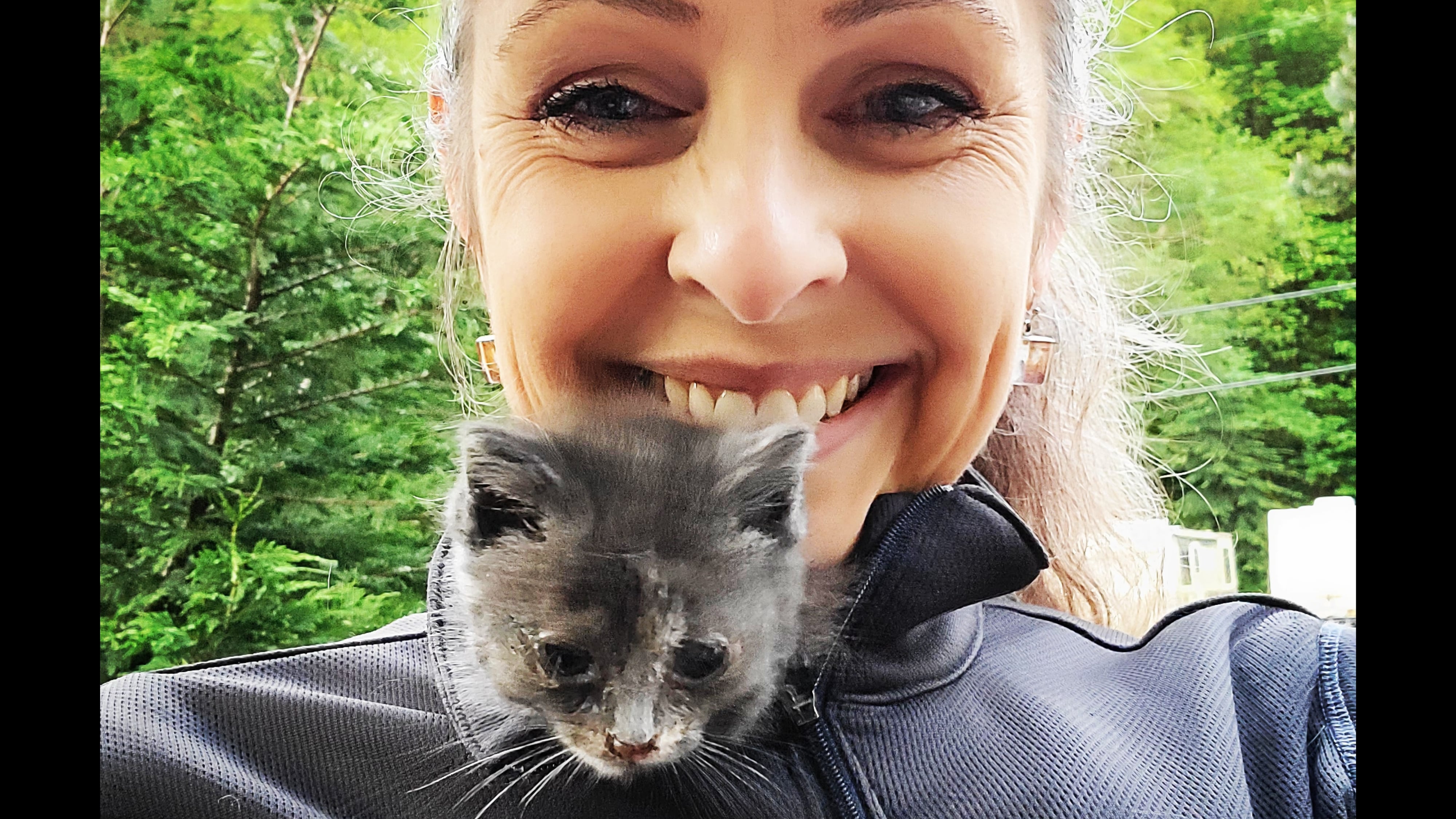When the number of stray neighborhood cats has gone from cute to out of control, there’s PDX Cat Trapper (pdxcattrapper.org). At no cost to the caller, the organization will TNR—trap, neuter, release—cats in order to keep the population at bay. Last year, it serviced 1,000 felines in the Portland metro area, mostly in densely populated areas east of the Willamette River.
Karen Jealous, 56, became the PDX Cat Trapper “almost by accident,” she says, after being inspired in 2018 by an opinion piece by a woman who ran a cat rescue organization. It started as a solo hobby to fill the void left by her teenagers, who were too cool to hang with Mom anymore, and grew into a nonprofit organization with dozens of volunteers. They are always looking for more volunteers and donations, though Jealous admits that fundraising can be sluggish: “People don’t want to pay for cats they don’t see.”
Jealous uses a mix of tuna and chicken-flavored cat food, along with crunchy treats, to entice cats into the traps. Jealous sets up the neutering appointments ahead of time, but trapping can take days of patience waiting for the cats to emerge for food. Once trapped, they sometimes need to be kept in an air-conditioned garage or a kennel if there’s a lag time before their appointment, and then again during recovery from the procedure. Even one cat TNR’d makes a big difference: According to the organization, up to 4,948 kittens can be born from one unaltered female and her offspring in seven years.
“When the cat population is growing and growing, it causes so much stress and anxiety for people,” Jealous says.
She probably would have burned out on cat trapping by now, she says, but the social work aspect of PDX Cat Trapper keeps her going.
The first time Jealous went to trap cats at a mobile home park in Milwaukie, for example, she knocked on all 30 doors to determine who, if anyone, owned or was feeding the cats. Some people were angry, others grateful, still others wanted to reminisce about their Fluffy who died five years before. It took her four hours to talk to 10 homes.
“That’s when I realized there’s so much more to this than just the cats,” she says.
See the rest of Willamette Week’s Best of Portland 2024 here!

